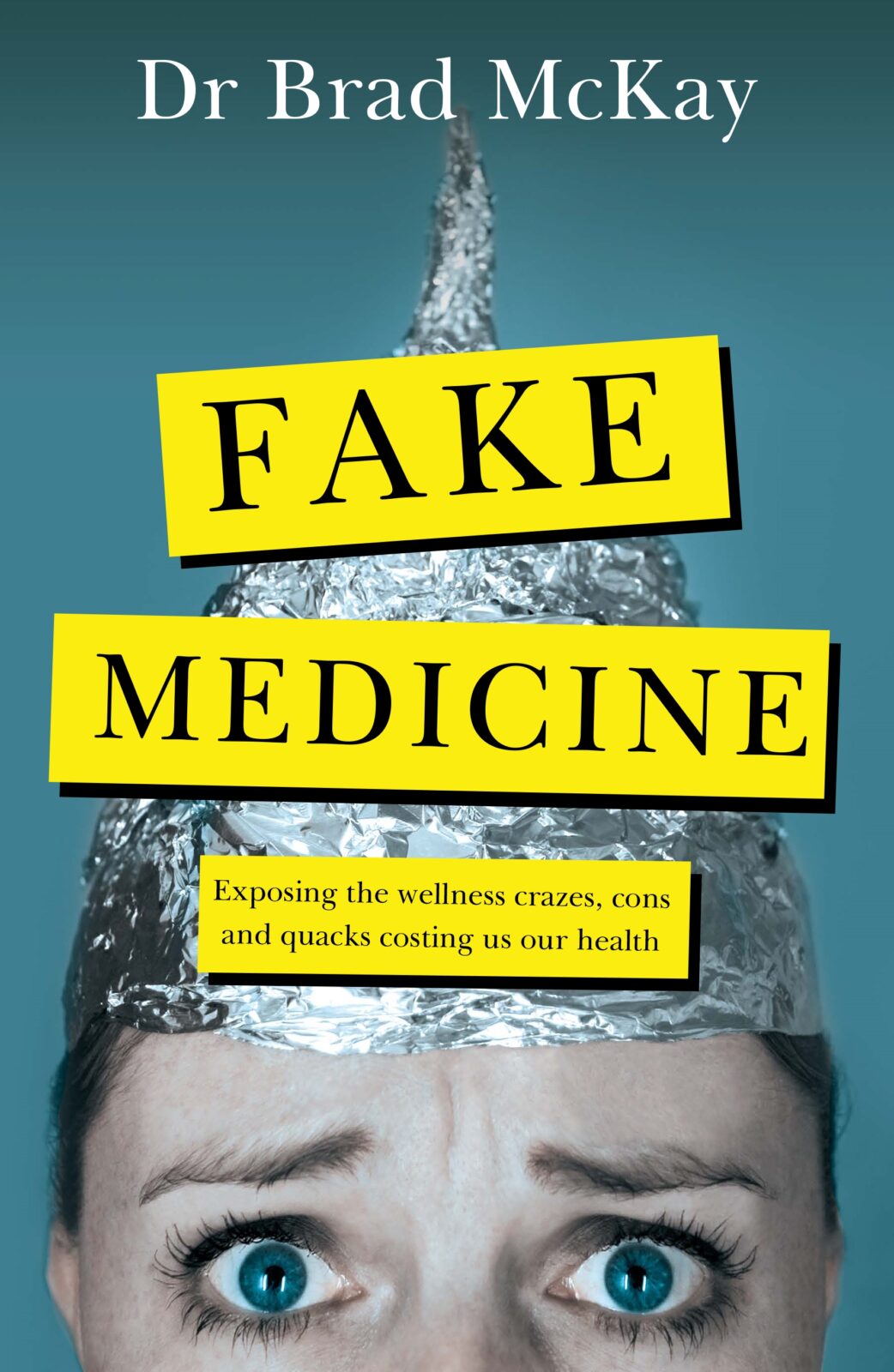
These days it’s near impossible to scroll through social media, watch television or read a magazine without coming across an advertisement for a new ‘miracle’ treatment promising to cure our ailments and turn our lives around.
Australian doctor Brad McKay, who’s best known for his popular television series Embarrassing Bodies Down Under, knows all too well what it’s like to be bombarded with fake news and misleading information. He has just published a book called Fake Medicine, in which he exposes the sciencey-sounding crooks and nonsense marketing targeting health-conscious Aussies.
We spoke to him about whether these so-called miracle supplements and alternative therapies are all they’re cracked up to be, or whether people should keep their wits about them when considering purchasing a natural health product.
“Most dietary supplements sold over the counter in Australia are unlikely to kill you — but even if they don’t cause you any direct harm they might not be doing you any good,” he says.
“When I started work as a doctor, my mentors taught me to recommend cranberry tablets for my patients with bladder infections, to use echinacea as a cure for the common cold, and to dish out fish oil capsules to ease the pain of osteoarthritis. However, over the years our scientific understanding of these products has changed dramatically. Despite being very popular remedies, cranberry tablets haven’t been proven to be useful for preventing or treating bladder infections, echinacea isn’t effective for curing a common cold, and fish oil capsules aren’t very impressive when it comes to treating osteoarthritis.
“Vitamins, minerals and supplements are constantly being studied. When a supplement is confirmed to work, we call it medicine. When there’s not enough scientific evidence to confirm a supplement works, we call it ‘alternative medicine’, ‘complementary medicine’ or ‘fake medicine’.
“After supplements have been rigorously studied and found to be useless, medical professionals put it in the bin and move on. Unfortunately, once a health product has found its way on to a store’s shelf, it’s difficult to remove. Even when we’ve been able to clearly prove it does absolutely nothing, it’s continually sold to unsuspecting customers.”
“Words like ‘alternative’, ‘complementary’, ‘detox’, ‘holistic’ and ‘natural’ are lovely and positive, so it’s easy to forget that they have been specifically chosen by a marketing team,” he says. “These disarming words are purposefully used to target a particular demographic — and you’re the target!
“Words are powerful and we’re attracted to descriptions that sound familiar, caring and confident. We trust products that appear to be earthy and grounded in nature, but don’t realise our emotional heartstrings are being manipulated by a supplement industry worth billions of dollars.
“Acupuncture is an interactive performance that uses the elaborate theatre of needle positioning to create a therapeutic effect that only envies that of a placebo,” he says. “Moxibustion is the same thing, but the needles are set on fire.
“Puncturing particular points around the body is supposed to release the flow of life energy called ‘qi’ by unblocking meridians. However, there are at least two flaws in this theory – meridians and ‘qi’ aren’t real.
“Cupping involves placing glass or plastic cups on the skin in an attempt to draw toxins out of the body. However these suction cups don’t draw out toxins – they only create giant bruises.”
“Alternative or complementary therapies are often thought to be harmless, especially when these remedies are framed as ‘traditional’ or ‘natural’ — but useless products can cause harm by delaying appropriate medical care,” he says.
“If nothing serious is going on, then treating yourself with green smoothies, superfoods and ‘ancient wisdom’ won’t hurt — but it’s a disaster to persist with futile treatments when you have something as serious as cancer.
“An early diagnosis can be lifesaving, but a delayed diagnosis can be deadly.”
“In a perfect world, major companies wouldn’t be selling nonsense or useless products to their loyal customers — but we don’t live in that perfect world,” he says. “Large corporations are allowed to manufacture placebo pills, start marketing these fraudulent products as the next essential cure-all, and then sell them from the shelves of otherwise reputable stores — including pharmacies. If this is allowed to happen all around Australia in broad daylight, imagine what an online seller can get up to in their garage or from the anonymity of the dark web.”
